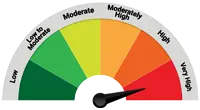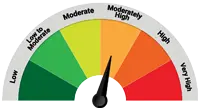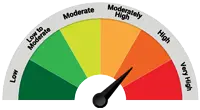Mutual funds have gained immense popularity in India. This is because they offer exposure to some of the top investment options at a low cost. Moreover, the best mutual fund companies have experienced money managers who specialise in making calculated decisions to maximise your returns.
What are Mutual Funds?
A mutual fund pools money from multiple investors and invests that in financial instruments like short-term debt, bonds, stocks and more. The combined holdings of the fund are called its portfolio. Investors purchase units of a mutual fund. Every unit represents part ownership of the fund and the income generated from it.
Types of Mutual Funds
Here are the various types of mutual funds to invest in
Based on Asset Class

Equity ETFs
In these funds, the money collected from multiple investors is invested predominantly into stocks or shares of various companies. An equity mutual fund scheme invests at least 65% of the scheme's assets in equities and equity related instruments. These funds have the...
In these funds, the money collected from multiple investors is invested predominantly into stocks or shares of various companies. An equity mutual fund scheme invests at least 65% of the scheme's assets in equities and equity related instruments. These funds have the potential to create long term growth, but at the same time, they tend to be riskier. They are suitable for investors with high risk appetite and long investment duration. Equity Funds can be managed actively or passively. Index Funds & ETFs are passively managed funds. The equity funds may further be categorized as per Market Capitalization (Large, mid & small cap) or as per investment style of the holdings (Value & Contra). They can also be categorized on the basis of geography (domestic or international). There are other categories of equity funds that target business sectors called sectoral funds. There are thematic funds that invest in securities of specific sectors such as IT, Banking, Service and pharma etc.,as specified in their scheme information documents. ELSS funds qualify for tax deductions under Section 80C of the Income Tax Act within the overall limit of ₹1.5 lakh.

Debt ETFs
These funds invest in fixed income iinstruments like treasury bills, securities and certificates of deposit, corporate and government bonds. These funds are also called income funds. They have potential for...
These funds invest in fixed income iinstruments like treasury bills, securities and certificates of deposit, corporate and government bonds. These funds are also called income funds. They have potential for income generation and capital preservation. The debt funds can further be categorized on the basis of tenor of underlying securities held in the fund. Some of the popular categories include Overnight Funds, Liquid Funds, long-term bonds, liquid funds, gilt funds, fixed maturity plans and more.

Commodity ETFs
They invest in a combination of stocks and bonds to offer a balance between growth and income. These funds are...
They invest in a combination of stocks and bonds to offer a balance between growth and income. These funds are recommended to investors willing to take higher risks and get the best of two or more asset classes.
Based on Structure

Open-Ended Funds
They don't have any specific number of units for trading or a particular period for investment. You can...
They don't have any specific number of units for trading or a particular period for investment. You can trade funds at your convenience and exit when needed at the prevailing NAV.

Closed-ended Funds
The fund house issues a a pre-decided number of units at launch. Once the...
The fund house issues a a pre-decided number of units at launch. Once the NFO period ends, investors cannot purchase or redeem from these funds.

Interval Funds
These have features of both close-ended and open-ended funds. Interval funds are open for...
These have features of both close-ended and open-ended funds. Interval funds are open for redemption or purchase only during certain intervals and are closed for the remaining time.
Based on Risk in Mutual Funds
Depending on the risk appetite, an investor can look at investing in different mutual funds. For instance, investors who prefer and liquid funds might be those who want to keep their money safe and meet short-term goals. Some mutual funds are recommended for investors with a high-risk appetite. Here are some examples risk funds:
Low-to-Moderate Risk
Moderately High Risk
Features of Mutual Funds

Liquidity
You can conveniently redeem fund units to meet financial emergencies. As per the scheme type, the redemption amount is generally credited in 3-4 business days to your...
You can conveniently redeem fund units to meet financial emergencies. As per the scheme type, the redemption amount is generally credited in 3-4 business days to your bank account from the date of redemption. You may incur an exit load on redeeming your debt or equity funds before the period mentioned in the scheme information document.

Professional Management
In an active portfolio, fund managers professionally manage mutual funds by watching the market closely and...
In an active portfolio, fund managers professionally manage mutual funds by watching the market closely and making constant investment decisions depending on the fund's goal. So, you don't have to research and pick individual stocks without expertise.

Portfolio Diversification
You get a diversified portfolio comprising various types of equities and other choices. Depending on the scheme's goal, a fund can be...
You get a diversified portfolio comprising various types of equities and other choices. Depending on the scheme's goal, a fund can be proportionately exposed to different financial tools such as debts, equities or other asset classes like gold, etc. So, the risk is distributed over various asset classes. Therefore, despite the poor performance of one asset in unfavorable market conditions, the other classes can still maintain your investment portfolio balance.

Tax Benefits
Both debt and equity funds have their own tax benefits. For example, in a financial year, equities let you earn up to ₹1 lakh as...
Both debt and equity funds have their own tax benefits. For example, in a financial year, equities let you earn up to ₹1 lakh as exempted mutual fund returns as long as you remain invested for 12 or more months. ELSS funds let you invest up to ₹1.5 lakhs annually and deduce this amount from your taxable income.

Investment Flexibility
Mutual funds offer flexibility. You can invest in...
Mutual funds offer flexibility. You can invest in small amounts regularly (starting from ₹500) through SIP or make a large lump sum investment.

Low Cost
A small amount, the expense ratio, is charged by a...
A small amount, the expense ratio, is charged by a fund house to the investors. It is levied to cover operating costs like administration, management and other expenses.

Properly Regulated
The Securities and Exchange Board of India (SEBI) regulates the market for mutual funds. Funds must...
The Securities and Exchange Board of India (SEBI) regulates the market for mutual funds. Funds must comply with SEBI (Mutual Funds) Regulations, 1996, to ensure the protection and transparency of the investor's money.

Ease of Purchasing
Instead of buying and selling offline, you can invest in mutual funds online on the website or app of the asset management company for your convenience. On the...
Instead of buying and selling offline, you can invest in mutual funds online on the website or app of the asset management company for your convenience. On the online platform, you can easily and quickly compare different fund products offered by the company and invest digitally.
Why Invest in Mutual Funds?
Mutual fund investment is a simple way to diversify your portfolio across several securities and asset categories like gold, debt and equity funds. This helps spread the risk so that all your eggs are not in one basket.
How to Invest in Mutual Funds?
You can directly invest in mutual funds online by applying at the fund house. Simply visit the fund house's website and fill up the required details. There's an option to complete your KYC procedure online via eKYC by entering your PAN and Aadhaar details. You can invest in a mutual fund by making a lump sum payment or choosing a systematic investment plan (SIP) at regular intervals (monthly, quarterly, half-yearly or annually).
Mutual Fund: Eligibility
Below are the eligibility criteria for investors of mutual funds in India:
Minor through lawful
guardian/ parent
Trustees and their
associates (being individuals)
Lawful guardian/ minor
through parent
Hindu Undivided Family
(through Karta or otherwise)
People of Indian Origin
residing abroad or Non-Resident Indians on a full (NRIs) repatriation basis (with RBI approval, if needed)

Partnership firms
People of Indian origin or Non-Resident Indians on
a non-repatriation basis or full repatriation basis (with RBI approval, if needed)
Private Trusts, Wakfs or endowments
of private trusts and Religious and Charitable Trusts authorised to invest in mutual fund schemes under their trust deeds
Adult Indian residents,
singly or jointly (not more than 3)
Mutual Funds: Advantages and Disadvantages
The main advantage of mutual funds investment plans is that investing in them allows diversification of your portfolio at a low cost and great convenience. Secondly, by choosing active management of your funds, you can allow them to be professionally managed by fund managers who can study the market conditions and make informed investment decisions on your behalf to make things easier for you. All you need to do is stay invested for the chosen period and enjoy to get the potential for returns on mutual funds.
One disadvantage of a mutual fund direct investment is that they are subject to market risk. There is no full-proof way to predict whether the value of a particular asset will rise or fall in the future. Nevertheless, fund managers can make the right decisions regarding mutual fund portfolio composition with their knowledge through their expertise in studying the market for years.
How Are Returns Calculated for Mutual Funds?
Calculating the returns for mutual funds can help you identify which scheme(s) to invest in. To do this, there are various ways of calculating the returns as specified below:

Absolute Returns
It is equal to the total change in the value of a mutual fund investment when you redeem it.
Formula =
(Final Value of Investment – Initial Investment Amount) × 100 / Initial Investment Amount

Annualised Returns
These are the returns earned yearly on a mutual fund investment. The investment is assumed to have grown at a constant rate.
Formula =
(Final Investment Value / Initial Investment Amount) ^ (1/number of years) – 1
How to Choose the Right Mutual Fund?
Calculating the returns for mutual funds can help you identify which scheme(s) to invest in. To do this, there are various ways of calculating the returns as specified below:
Investment
objective
Consider whether you want regular income or growth. Debt funds are suited for regular income, while equity funds are recommended for capital appreciation.
Investment
horizon
Equity funds are more suitable for long-term goals, while debt funds are ideal for short- or medium-term financial goals. Ultra-short-duration, liquid, and overnight funds are recommended for very short-term goals.
Risk
profile
You should match a scheme's risk profile with your risk appetite. Equity funds are ideal if your risk appetite high to very high. Debt funds are better if your risk appetite is low to moderate.
Know the Difference
Calculating the returns for mutual funds can help you identify which scheme(s) to invest in. To do this, there are various ways of calculating the returns as specified below:
Mutual Funds vs Stock Market
Mutual funds can comprise assets like bonds or stocks. Stocks comprise shares in individual companies. Both shares and mutual funds are exposed to market risk. But thankfully, in mutual funds, the risk is reduced since your money is diversified in different assets or a portfolio of stocks.
Mutual Funds vs ETF
ETFs are usually passive investments controlled by the performance of a certain index. On the other hand, mutual funds are available in both active and passive options but are generally managed actively.
Mutual Funds vs Index Funds
Your money in active mutual funds is invested in a changing list of securities as per the fund manager's choice. But index funds mimic a particular index (like stocks of 500-listed companies solely).
Mutual Funds vs Bonds
In mutual funds, money pooled from several investors is used together to purchase a wide variety of securities. But bonds are debt instruments issued by corporations and government to raise money.
Mutual Funds vs Annuities
A mutual fund invests the money of shareholders in its portfolio. In contrast, an annuity acts as an insurance product to offer guaranteed lifetime income to the holder. In the long run, a mutual fund has the potential to offer higher rates of return than a variable annuity and even a low-risk fixed annuity.
Mutual Funds vs Bonds
In mutual funds, money pooled from several investors is used together to purchase a wide variety of securities. But bonds are debt instruments issued by corporations and government to raise money.
Mutual Funds vs Annuities
A mutual fund invests the money of shareholders in its portfolio. In contrast, an annuity acts as an insurance product to offer guaranteed lifetime income to the holder. In the long run, a mutual fund has the potential to offer higher rates of return than a variable annuity and even a low-risk fixed annuity.
Mutual Funds Glossary (Important Mutual Funds Terms)

Net asset value (NAV)
It refers to the price of a unit share of a fund on a specific date and time.

Actively managed investment fund
Investment decisions in this kind of mutual fund are taken by the fund manager after extensive research and study of the market.

Passively managed investment fund
Investment choices in this kind of fund are made by following a market index.

It involves allocating the total money invested in mutual funds in various asset classes like derivatives, equities, bonds, and more.

Asset Management Company (AMC)
It is a company which creates mutual funds, monitors them, manages its assets and takes care of the investment-related choices of these funds. Every AMC must be registered with the Securities and Exchange Board of India (SEBI).

Assets Under Management
It refers to the aggregate value of an investment company's assets in the market.

Mutual fund portfolio
It refers to the collection of investments made in various mutual fund schemes.
Know more about Mutual Funds (MF)?
-
Learn How to Invest in Quantum Mutual Funds?
Check out this video to learn how to invest online in Quantum Mutual Funds. Invest in various mutual fund schemes and diversify your investment portfolio with our 12-20-80 Asset Allocation formula.
-
When is the right time to invest in equity mutual funds?
Mr. Nilesh Shetty, Associate Fund Manger - Equity talks about the right time to invest in equity mutual funds.
-
Why Should You Invest in Quantum's Value Funds?
Value mutual funds follow the value investing principle and help investors generate wealth with low volatility and better risk adjusted returns.
Product Labelling
| Name of the Scheme | This product is suitable for Investors who are seeking* | Risk-o-meter of Scheme |
|---|---|---|
|
Quantum Long Term Equity Value Fund An Open Ended Equity Scheme following a Value Investment Strategy. |
• Long term capital appreciation. • Invests primarily in equity and equity related securities of companies in BSE 200 index. |

Investors understand that their principal will be at Very High Risk. |
|
Quantum ELSS Tax Saver Fund An Open Ended Equity Linked Saving Scheme with a Statutory Lock in of 3 years and Tax Benefit. |
• Long term capital appreciation. • Invests primarily in equity and equity related securities of companies in BSE 200 index and to save tax u/s 80 C of the Income Tax Act. Investments in this product are subject to lock in period of 3 years. |

Investors understand that their principal will be at Very High Risk. |
|
Quantum Multi Asset Active FOF An Open Ended Fund of Funds Scheme Investing in schemes of Quantum Mutual Fund. |
• Long term capital appreciation and current income. • Investments in portfolio of schemes of Quantum Mutual Fund whose underlying investments are in equity, debt / money market instruments and gold. |

Investors understand that their principal will be at Moderately High Risk. |
|
Quantum Gold Savings Fund An Open Ended Fund of Fund Scheme Investing in Quantum Gold Fund. |
• Long term returns. • Investments in units of Quantum Gold Fund – Exchange Traded Fund whose underlying investments are in physical gold. |

Investors understand that their principal will be at High Risk. |
*Investors should consult their financial advisers if in doubt about whether the product is suitable for them.
Disclaimer: The views expressed here in this Article / Video are for general information and reading purpose only and do not constitute any guidelines and recommendations on any course of action to be followed by the reader. Quantum AMC / Quantum Mutual Fund is not guaranteeing / offering / communicating any indicative yield on investments made in the scheme(s). The views are not meant to serve as a professional guide / investment advice / intended to be an offer or solicitation for the purchase or sale of any financial product or instrument or mutual fund units for the reader. The Article / Video has been prepared on the basis of publicly available information, internally developed data and other sources believed to be reliable. Whilst no action has been solicited based upon the information provided herein, due care has been taken to ensure that the facts are accurate and views given are fair and reasonable as on date. Readers of the Article / Video should rely on information/data arising out of their own investigations and advised to seek independent professional advice and arrive at an informed decision before making any investments. None of the Quantum Advisors, Quantum AMC, Quantum Trustee or Quantum Mutual Fund, their Affiliates or Representative shall be liable for any direct, indirect, special, incidental, consequential, punitive or exemplary losses or damages including lost profits arising in any way on account of any action taken basis the data / information / views provided in the Article / video.
Mutual fund investments are subject to market risks read all scheme related documents carefully.
Frequently Asked Questions
Mutual fund investments are good for those who wish to diversify their portfolio conveniently at a low cost.
You can earn income from interest on bond funds and IDCW option on mutual fund.
Consider whether you have a short-term or long-term financial objective. For a short-term goal, a mutual fund with low risk, the potential to yield high returns and a short lock-in period are suitable. The reverse is suitable for a long-term goal.
Yes. A maximum amount of up to Rs 1,50,000 invested in tax-saving mutual funds is eligible for tax deduction under the Income Tax Act, Section 80C.
By investing in mutual funds, you can earn through capital gains and IDCW option.





